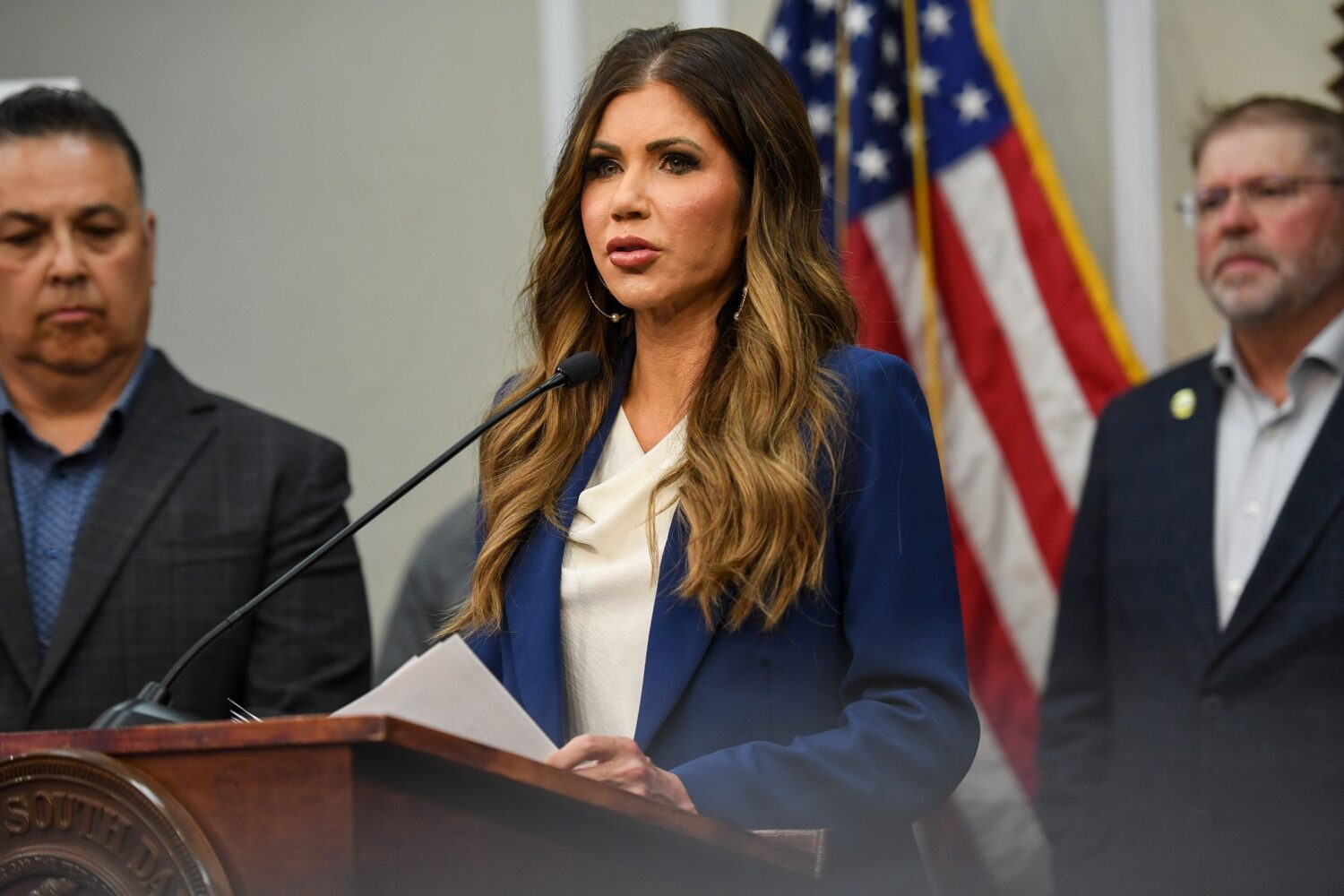South Dakota’s Flandreau Santee Sioux tribe (FSST) has joined other Native American tribes in banning Governor Kristi Noem from their lands, marking the culmination of a contentious relationship fueled by controversial remarks and actions.

Controversial Remarks and Actions
The ban stems from Noem’s comments earlier this year accusing tribal leaders of benefiting from international drug cartels, which sparked widespread outrage and condemnation. The Flandreau Santee Sioux tribe’s decision to bar Noem from their property follows similar actions by the state’s other eight official Native American tribes.
Tyler Rambeau, executive administrative assistant of the FSST Homeowners Assistance Fund, emphasized the importance of solidarity with other South Dakota tribes, stating, “We do not want to come up on the wrong side of history in this moment.” Noem, a vocal supporter of former President Donald Trump, faced additional criticism after revelations about her book, where she admitted to shooting her family dog and goat in what she described as “cold blood.”
Political Fallout and Response
Noem’s political future, once promising as a potential running mate for Trump, now appears uncertain. Her controversial remarks and actions have drawn widespread condemnation, including allegations that Indigenous children struggle in school because their parents “do not show up” for them. In response to the bans, Noem expressed a desire to cooperate with tribal leaders in the future but did not directly address the bans themselves. She defended her comments as efforts to address real challenges faced by some areas of Indian country.

“Our people are being used for her political gain,” said Oglala Sioux Tribe president Frank Star Comes Out to the Associated Press, highlighting the growing frustration among tribal leaders over Noem’s conduct. The controversy surrounding Noem underscores the deep divisions and distrust between the governor and Indigenous communities in South Dakota. As tensions continue to simmer, the bans on Noem highlight the ongoing struggle for respect, understanding, and partnership between state leadership and Native American tribes.
